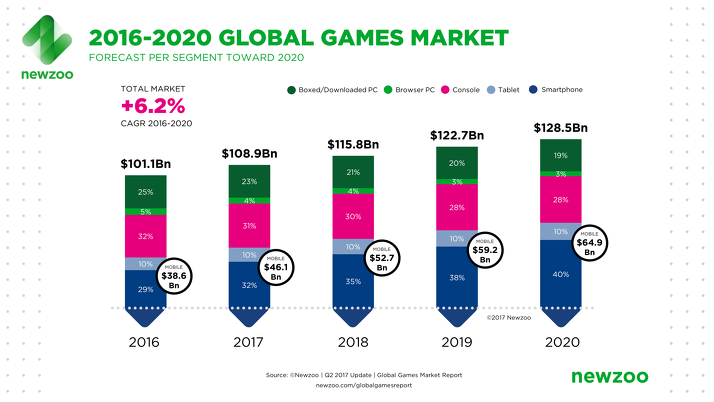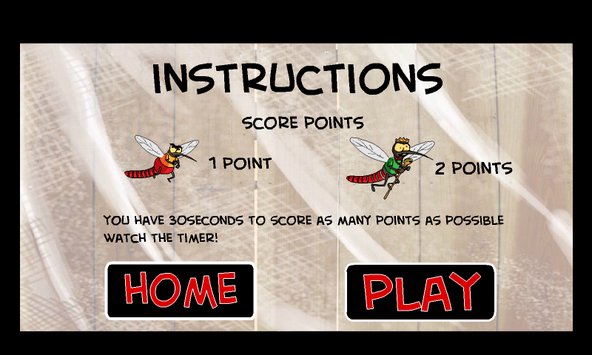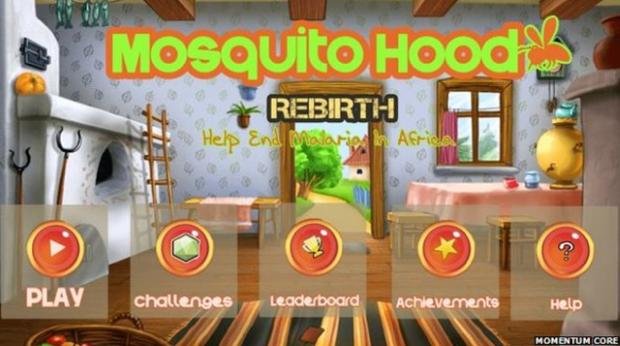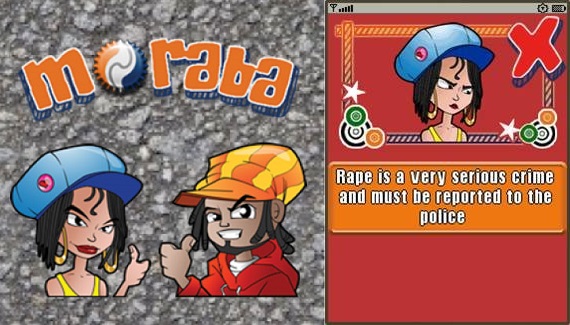We all want to learn, but how can we make it more engaging for both the teacher and the learner? How to learn better? The best way to do it is through a game. Find out why developing mobile video games can be a solution to providing more access to education in Africa.
A broad range of digital and non-digital games exists. Digital games are developed for use on smartphones, computers, tablets, etc., whereas non-digital ones employ components such as boards, cards, pencils and papers .
Serious Games are pedagogical games designed to educate, train and inform. These entertaining games for learning have attracted significant attention in the field of education, the medical sector and public institutions. They are characterised by various elements such as goals, rules, restrictions, interaction, challenge, feedback, rewards and competition. They are seen as an effective and efficient instructional strategy for teaching and learning, as they involve competition and are organised by rules and restrictions to achieve a certain educational goal. For instance, competition stimulates the will to win and helps students stay focused on the learning activity.
This oxymoron “Serious Games” was first used in the title of a book by Clark Abt in 1970. Since then, the term has been widely studied by experts. For instance, in the field of education, Prensky found that SG must combine two powerful factors for success. One is the key purpose of the game, in which a learner can be pushed into a learning environment unconsciously in the game. The other is the integration of learning methods that enhance the teaching efficiency and reduce boredom when compared to learning at school.
These educational games are believed to result in a wide range of benefits like increasing learning effectiveness, interest and motivation as well as reducing training time and instructor load. They are expected to be a fun and safe environment in which students can try alternatives and see the consequences, learning from their own mistakes and practical experiences. One of the appeals of serious games is the interaction they provide among their participants. The training experience lies not only on the screen but also in the challenges offered by this game-based learning method. Serious games have proven to be equally or even more effective than traditional ways of learning.
Mobile serious games and mobile learning are more convenient and accessible.
Initially, serious games were mostly designed for use on a computer. In recent years, however, we are observing a shift in the way people are consuming content and the way we learn. Mobile devices are booming and increasingly challenging the other platforms.
Today’s smartphones have surpassed early computers in performance, being comparable to ordinary desktops and laptops in speed and power. People are now developing serious games for mobile devices based on mobile operating systems, such as iOS, Android and Windows. In an increasingly digital world, it is only natural to have access to these products from different platforms anywhere and at any moment. The use of smartphones for purposes other than entertainment can be oriented toward exploiting these devices’ small size and contextualization facilities in conjunction with users’ ubiquitous availability (on the go, while waiting) to engender productive activity, such as learning.
Mobile learning is becoming a key element in the development of serious games, especially in Africa, where the accessibility and convenience offered by mobile devices can really be an advantage over computers and static equipment. Moreover, M-Leaning can be either context independent, tapping into users’ availability to learn in any location , or context dependent, taking into account users’ location (geographical, logical, …). It somehow eliminates the barriers set by age, gender (women are now playing as much as men[1]), revenue, time, as well as many other obstacles. Considering all these facts and with the demonstrated efficacy of SG in the learning and teaching process, we believe that this is an opportunity for African developers to invest in mobile serious game (MSG) and mobile learning solutions.

THE BOOMING MARKET OF MOBILE SERIOUS GAMES: AN OPPORTUNITY FOR AFRICAN DEVELOPER.
In its Global Games Market Report, Newzoo called mobile the “most lucrative segment” of the video-game industry, while noting that it should grow 19% year-on-year to $46.1 billion, which would represent 42% of the market. By 2020, mobile gaming will represent just over half of the total games market, the firm said[2]. Therefore, the future of game-based learning will be understood through the lens of mobile devices. The development of serious games for mobile devices is beginning to gain importance, and the impact will continue to grow. The mobile serious games market is experiencing growth in two main sectors: education and business. The potential of mobile serious games in the African market is huge, especially because of high investment returns, relative ease of development, the ability to attract many different users, and the games’ applicability in real life. African videogame developer should cooperate with the corporate training and education industry.
African videogame developers can turn smartphones into another instrument to further enhance learning efficiency. Through smartphones and mobile devices (tablets, iPads, etc.), the development of skills and soft skills in Africa will be easier and more affordable than ever before. Some of them have taken the lead by developing games that go beyond folkloric echoes into having modern social relevance. Maliyo’s mobile game Mosquito Smasher isn’t just a satisfying time-killer but also keys into a serious health problem.

It is “aimed at raising awareness of malaria, and sensitizing people about the need to cultivate good hygiene habits”[3] says Obi, cofounder of Maliyo Games. Ghana’s Leti Arts game Hello Nurse, developed with the country’s ministry of health and JHPIEGO, is an interactive story designed to help trainee medical staff (midwives and nurses) diagnose and treat malaria. An evaluation study[4] conducted on Hello Nurse demonstrated its effectiveness in learning about malaria at the Midwifery training college of Teshie. With a different scenario, Mosquito Hood, designed by Momentum Core, educates Africans living in rural areas about the risks and ways to protect themselves against malaria. The Kenyan government awarded a mosquito net to the family of all players living in a malaria-affected area who passed all levels of Mosquito Hood. This game has been a great success in the development of educational games.

My Jorley[5], another Leti Arts’ game, deals with sexual health in adolescents and young adults aged 12-21. Ugandan game developer Daniel Okalany, co-founder of Kola Studios, created ZWord, a game that uses the zombie destruction method and combines the properties of educational games with popular culture to learn spelling. The South African gaming studio Afroes[6]focuses on educational games that can bring social change.

One of these games, called Moraba[7], designed in partnership with UN Women, aims to empower youth audiences to prevent and act on Gender Based Violence (GBV). It is a quiz-based adaptation of Morabaraba, the traditional southern-African board game of strategy and wit. The game is free and generates revenue through sponsors and advertising. Finally, the game Ebola Strike Force tells the story of researchers and scientists who want to save humanity from a deadly virus. Sambisa Assault, another game, gives players the opportunity to join the fight against terrorism. These few examples of successful educational games have paved a path that demonstrates why African game developers need to invest more and specialize even further in this field.
Conclusion
In Africa, mobile devices and smartphones are the most convenient and affordable platform used to access content. Educational games are an innovative instructional strategy to achieve more effective learning. With the challenges faced in the access to education and professional training, mobile educational games are another appropriate tool to enhance the learning and teaching experience. As the market for these game-based learning tools spreads, African video game developers should also tap into this industry by designing meaningful and original educative content, so that teachers can diversify their instructional methodology. As the industry is still emerging, they need institutional and financial support to overcome the distribution and social challenges to their expansion.
Author: NGNAOUSSI ELONGUE Cedric Christian, Instructional Designer.
[1] Actually, there is no data on the gaming habits of African women.
[2] James Brightman, « Mobile games booming as global games market hits $108.9B in 2017 – Newzoo », [En ligne : https://www.gamesindustry.biz/articles/2017-04-20-mobile-games-booming-as-global-games-market-hits-usd108-9b-in-2017-newzoo]. Last checked 16 April 2018, p. 201.
[3] Phil Hoad, « Meet the new gaming talent rising up from Ghana to Cameroon », [En ligne : https://amaphiko.redbull.com/en/magazine/africa-s-got-game]. Consulté le22 mars 2018.
[4] Cédric Christian Ngnaousi Elongué, Design and Evaluation of Serious Game for health training in Ghana, Master of Professional Studies, Lilles University of Science and Technology, 2018, 76 p.
[5] “Jorley” is a Ga word translating roughly as ‘sweetheart’.
[6] AFROES, short for African Heroes, is a digital gamification and technology company that creates and distributes uniquely African mobile games-based applications and solutions for social agencies, corporate enterprises and governments keen to reach youth users. Afroes gamified products and services are designed in a fun, interactive and measurable way to reach millions and transform the users’ lives vis-à-vis social issues.
[7] https://play.google.com/store/apps/details?id=com.afroes.moraba&hl=en
